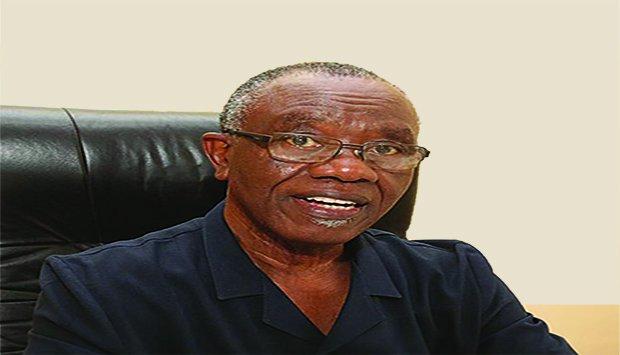Africa-Press – Angola. The reverend of the Evangelical Baptist Church of Angola (IEBA), Daniel Ntoni-a-Nzinga, stated in Luanda that the agreements signed on 4 April 2002 represent the end of the military conflict, but not the social and even economic confrontations experienced daily by Angolans.
“The agreements signed on 4 April represent the end of the military crises, but the social and economic confrontations have not stopped. The military confrontations are the result of political disagreements”, assured Daniel Ntoni-a-Nzinga, pastor of the Evangelical Baptist Church of Angola. (IEBA).
According to Ntoni-a-Nzinga, in 2002, before and after the signing of the April 4 agreement, he worked with the inter-ecclesial committee for peace in Angola, which had defined peace as a “common experience of life together in harmony”.
“I am very happy with the conclusion of the inter-ecclesial committee for peace, which suggested to the country that peace must be the common experience of living in harmony. These words were not chosen to impress. It is out of conviction. Angola, for peace to be peace, every Angolan must be living the same experience with the other”, emphasized the IEBA pastor.
According to the Baptist prelate, when speaking of common experience, he means that the individual walking, listening, being at home does nothing that disturbs others and vice versa. “If I’m hungry, because I can’t work, you feel like you need it, even though you ate. And when you feel, you want something done, for the other to have what he needs”, he assured, to add, that living in peace removes the absence of children and adults on the street, a concrete reality at least in Luanda.
On the hypothesis of the absence of the Holy Spirit, which is the representative of God in man and in Angola, the former secretary general of the Angolan Council of Evangelical Churches acknowledged that the same is found in all places where God is found.
“It’s not the lack of the Holy Spirit that’s our problem. Human beings think they can do everything without God. We had a certain time when religion wasn’t important in our lives. We could live better without religion, it didn’t work.” Therefore, when we do not want to obey the rule that God has established, the guidelines that he has given us are not followed, which leads to a long conflict similar to the one we live in”, emphasized the interviewee.
Regarding the preparations for the elections next August, the interlocutor advises the authorities to do everything possible to resolve the obstacles encountered along the way.
In the opinion of Daniel Ntoni-a-Nzinga, when there is no consensus on the part of those who are managing the process, those who must make decisions, the electoral process and State institutions can be discredited.
The founder of the Baptist Church in Angola, after independence, regrets the fact that until now the country is lacking a company capable of supporting elections, without the support of the Spanish company of technological solutions, the so-called INDRA.
“In this regard, can we not hold elections, without the participation of a foreign company, to help? asked the evangelical pastor, adding that he has some doubts about it, because the country has already evolved, it is no longer in the 1975, when there were few people with knowledge of the techniques and technology in force in the world.
In the opinion of the former executive secretary of the inter-ecclesial committee for peace in Angola (COIEPA, the millions that are paid to these foreign companies should be channeled to similar national ones, so that these are the organized future of the next electoral elections.
On the events of Sanza Pombo, Daniel Ntoni-a-Nzinga considers it to be a consequence of the partisanship of Angolan politics, since the time of struggle against colonialism. According to him, you rarely learn to give credit to someone who does a certain thing well.
The prelate says that by not knowing how to recognize the other in what he does well, that person is very easily characterized as a bad man. “We don’t see that something good is also in him. We simply let ourselves be carried away by this feeling of superiority, a dangerous feeling in the Angolan reality”.
Daniel
Ntongi-a-nzinga
Birth date
11 November 1946
Birthplace
Kilumbo village in Damba municipality, Uige province
Marital status
married
Profession
Pastor of the Evangelical Baptist Church of Angola and university professor
Formation
Doctorate in Theology (Contextual) and Anthropology (Religious Sciences)
For More News And Analysis About Angola Follow Africa-Press






